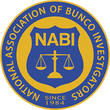Read this before you get that winning sweepstakes and lottery call
True lotteries or sweepstakes don’t ask for money. If someone wants money for taxes, themselves, or a third party, they are most likely criminals after your hard earned money.
You have to enter to win. To win a lottery, you must buy a lottery ticket. To win a sweepstakes or prize, you must have entered first. If you can’t remember doing so, that’s a red flag so hang up.
Call the sweepstakes company directly to see if you won. Publishers Clearing House (PCH) does not call people in advance to tell them they’ve won. Report PCH imposters or check to see if you have actually won at 800-392-4190.
Check to see if you won a lottery. Call the North American Association of State and Provincial Lotteries at (440) 361-7962 or your local state lottery agency.
Do an internet search of the company, name, or phone number of the person who contacted you.
Law enforcement officials do not call and award prizes. Verify the identity of the caller and do not send money until you do.
Talk to a trusted family member or your bank. They may be able to help. If the tell you not to tell anyone it is a scam.
The Weapon's of Fraud, an AARP video report produced in 2001, offers relevant and accurate insights into how scammers still operate today as told by scammers and victims.
In the Foreign Lottery Scam, you receive a call, email or letter -- usually from a foreign country -- telling you about a way to select winning lottery numbers, and you need to call a toll-free number to find out more. There is no need to call that number. All the con criminal has is a winning way to take your money.
A person offers to sell a winning lottery ticket or a "law firm" says someone has left you a winning lottery ticket, but you must send money so a computer can verify your identity. The "winning" ticket may be counterfeit or not exist. Be suspicious, do NOT buy a ticket from an individual, and do NOT send money!
You have to enter to win. To win a lottery, you must buy a lottery ticket. To win a sweepstakes or prize, you must have entered first. If you can’t remember doing so, that’s a red flag so hang up.
Call the sweepstakes company directly to see if you won. Publishers Clearing House (PCH) does not call people in advance to tell them they’ve won. Report PCH imposters or check to see if you have actually won at 800-392-4190.
Check to see if you won a lottery. Call the North American Association of State and Provincial Lotteries at (440) 361-7962 or your local state lottery agency.
Do an internet search of the company, name, or phone number of the person who contacted you.
Law enforcement officials do not call and award prizes. Verify the identity of the caller and do not send money until you do.
Talk to a trusted family member or your bank. They may be able to help. If the tell you not to tell anyone it is a scam.
The Weapon's of Fraud, an AARP video report produced in 2001, offers relevant and accurate insights into how scammers still operate today as told by scammers and victims.
In the Foreign Lottery Scam, you receive a call, email or letter -- usually from a foreign country -- telling you about a way to select winning lottery numbers, and you need to call a toll-free number to find out more. There is no need to call that number. All the con criminal has is a winning way to take your money.
A person offers to sell a winning lottery ticket or a "law firm" says someone has left you a winning lottery ticket, but you must send money so a computer can verify your identity. The "winning" ticket may be counterfeit or not exist. Be suspicious, do NOT buy a ticket from an individual, and do NOT send money!
Sweepstakes Scams
You've Just Won $25,000! Or a boat, or a car, or something else "valuable." So goes The pitch. But if you"re asked to pay before you get your prize, it's a scam. Often these outfits claim the money is for shipping, taxes, or something like that. But legitimate companies rarely require any payment or purchase up front.
